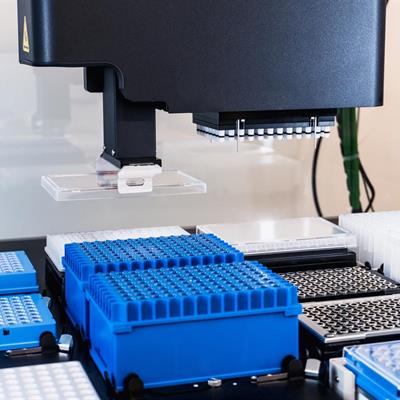November 3, 2021 -- Worldwide, the business environment is facing several challenges. Not surprisingly, these issues also impact laboratory tool companies. Tanya Samazan, managing editor of Instrument Business Outlook (IBO), spoke with Michael Copps, president and CEO of the Analytical, Life Science & Diagnostics Association (ALDA) about how ALDA member companies are addressing the challenges.
ALDA is the major trade organization for the scientific tools industry in the U.S. ALDA members include executives from the largest analytical instrument and lab product companies.
Samazan: How are your organization's members responding to the supply chain situation?
Copps: The supply chain is certainly having an impact on our member organizations, as it is with most industries. All the items in the headlines are impacting our members, from freight issues to labor shortages to electronics. It's a major hurdle for many companies, but most seem to be navigating and mitigating serious impact by working directly with customer organizations and suppliers, and finding alternative suppliers when necessary. This certainly isn't specific to our space, so there is a widespread understanding of the impact that the supply chain is having on everyone.
Samazan: In addition to the supply chain situation, what is the greatest challenge facing your members at the present time?
Copps: There are many challenges right now in addition to the supply chain. I know top of mind at this moment for companies with operations in the U.S. is navigating the executive order on vaccine mandates and testing. ALDA has been hosting collaboratives on this topic since January, and similar hurdles have existed throughout this timeline.
Quite a few ALDA member companies were already heading in this direction, but the Biden mandate has accelerated the process for many of our members. While they are all at different stages, most are looking to institute some sort of policy within the next few months, with some waiting to see what OSHA actually ends up mandating.
From forming the policy to communicating it to enforcing it -- including the defining of exemptions and the processes around managing them -- this is yet another multilayered, cross-organizational hurdle that COVID-19 has dealt our members. As with previous hurdles, from stay-at-home orders to PPE to the return to the office to the aforementioned supply chain issues, our members have shown great resiliency and ingenuity in developing thorough, thoughtful protocols and procedures that have helped them navigate these obstacles and focus on the business at hand. The vaccine mandate will be no different.
Samazan: Currently, how are COVID-19 issues, in terms of lab visit restrictions, researchers working at home, etc., impacting your members' sales and service opportunities?
Copps: A year ago, this was a major driver of sales and service impact. It appears that, for the most part, labs are largely back to pre-COVID levels. In the U.S., we are also currently in a solid funding environment as mentioned above, which is a good thing for a lot of our member companies. While general sales and installations are looking solid, there are still lab-level restrictions on visitors and staff that service, and so support teams are navigating using new tools and technologies.
ALDA is hosting its annual Service and Support Executives Conference virtually in December, and we will talk about just that -- a continuation on last year's theme. But there's the added dimension that companies are dealing with: workforce. And not just labor shortage, but an aging workforce as well.
We are going to discuss attracting and retaining service employees and dealing with an aging workforce, as well as what tools exist to supplant the lack of skilled labor and the increased demand for response time. Where are artificial reality/artificial intelligence and other tools being successfully utilized? How do we bridge the skills gap? These COVID-19 issues are combining with long-in-development issues to add a layer of difficulty to these opportunities.
This interview has been edited from comments contributed to an article appearing in Instrument Business Outlook's November 2 issue. The full article features comments from laboratory tool trade organizations worldwide. IBO is a subscription-based newsletter published twice monthly, covering the laboratory tools business. It is now in its 30th year of publication.
Tanya Samazan is managing editor of Instrument Business Outlook, a twice-monthly newsletter aimed at providing decision-makers with the latest and most complete information available on the life science and analytical instrument industry.
Disclosure: ScienceBoard.net is a sister company of IBO.
Do you have a unique perspective on your research related to analytical instruments? Contact the editor today to learn more.
Copyright © 2021 scienceboard.net









